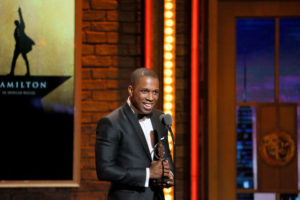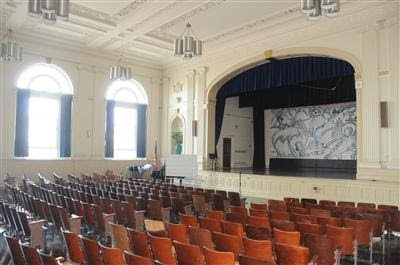I sat in an uncomfortable wooden seat in Masterman’s cavernous auditorium. It was my first time attending the annual day of health awareness presented by our Peer Educators, which kicked off with a live program.
The theme that year was awareness of sexual assault. Between speeches, songs, or short plays, a single student would emerge from behind the curtain and stand alone in the spotlight. They stood there and shared a story of assault – not their own, but one solicited from friends or family. The stories were told in the first person, sometimes in the present tense – frank and unfiltered. They weren’t something you would expect to see on a high school stage, but absolutely something that ought to be there.
A portion of the program ended, bringing us to another punctuating monologue. A young man stepped out onto the stage. He had his hair in little twists and a flannel shirt around his waist, as was the style at time. And he just… talked. About being a kid, about joy and wonder, and about how his assault ended that.
It’s not my story to share or repeat, but I remember so many elements of that monologue to this day. Words, but pauses, too. The look on his face.
I was dumbstruck by it. Not because I was a survivor of assault. Not because a man was delivering the story rather than a woman. I was struck because of the piercing honesty of the words. There was no moment of latency between the actor and the performance. I knew they weren’t his own words, but he made it impossible to believe.
Sometime later the lights came up and students filtered out of auditorium to attend workshops on consent, healthy body image, and safe sex. My mind was still on the stage. As I watched my peers have open discussions about their experiences, questions, and fears, I had one thought fixed in my mind: I needed to become a Peer Educator. What they were doing was important. They were not only educating, but creating fundamental shifts in thinking.
 That young man was Leslie Odom, Jr, a frequent supporting player on TV and Aaron Burr in Broadway’s Hamilton. I went to middle school with him, but knew him from a distance only as the kid with the golden voice who sang at assemblies and was an 8th grader playing a lead in the high school play. I actually met him in Freshman year. I sat next to him in geometry; he read the lyrics to Lisa Loeb’s “Taffy” at a poetry slam.
That young man was Leslie Odom, Jr, a frequent supporting player on TV and Aaron Burr in Broadway’s Hamilton. I went to middle school with him, but knew him from a distance only as the kid with the golden voice who sang at assemblies and was an 8th grader playing a lead in the high school play. I actually met him in Freshman year. I sat next to him in geometry; he read the lyrics to Lisa Loeb’s “Taffy” at a poetry slam.
I am sure that Leslie doesn’t recall me. He has no reason to. I don’t recall if we had a single conversation before he switched schools to pursue his creative pursuits. Honestly, I was always a little starstruck by him.
I recall that monologue, though. It was still playing in my head when I joined the Peer Education program during the next call for applications. I still think about it from time to time; I can still play it back.
I spend a lot of digital ink talking about how my BFF Gina made performance look easy and helped me discover my life as a performer, but I often overlook that I also went on to produce pair of those health awareness assemblies and facilitate those workshops. That was a massive part of my transformation and newfound self-confidence as a performer and occasional activist. I had never voluntarily been on a stage before. I became the one delivering the performances and monologues to the school. I’d never have Leslie’s control or gravitas, so I found my own way. I mocked convention. I mocked myself. I tried to make everyone think while they laughed.
On Sunday night, Leslie won a Tony Award. I would give him one myself, if I could, for that one monologue still seared into my brain and how it contributed to changing my life. I’ve now been a performer for more than half of it. I used to file into the auditorium as an audience member, but now I’m at home on stage. It’s how I met my wife. I’m a steadfast advocate for a sexual health and reproductive rights. I’m raising my daughter with the idea that she has autonomy over her body and that consent matters for everyone.
Leslie won a Tony Award and I cried before I even saw his acceptance speech.
Congratulations, Leslie. I am extraordinarily happy for you and I can never thank you enough.
